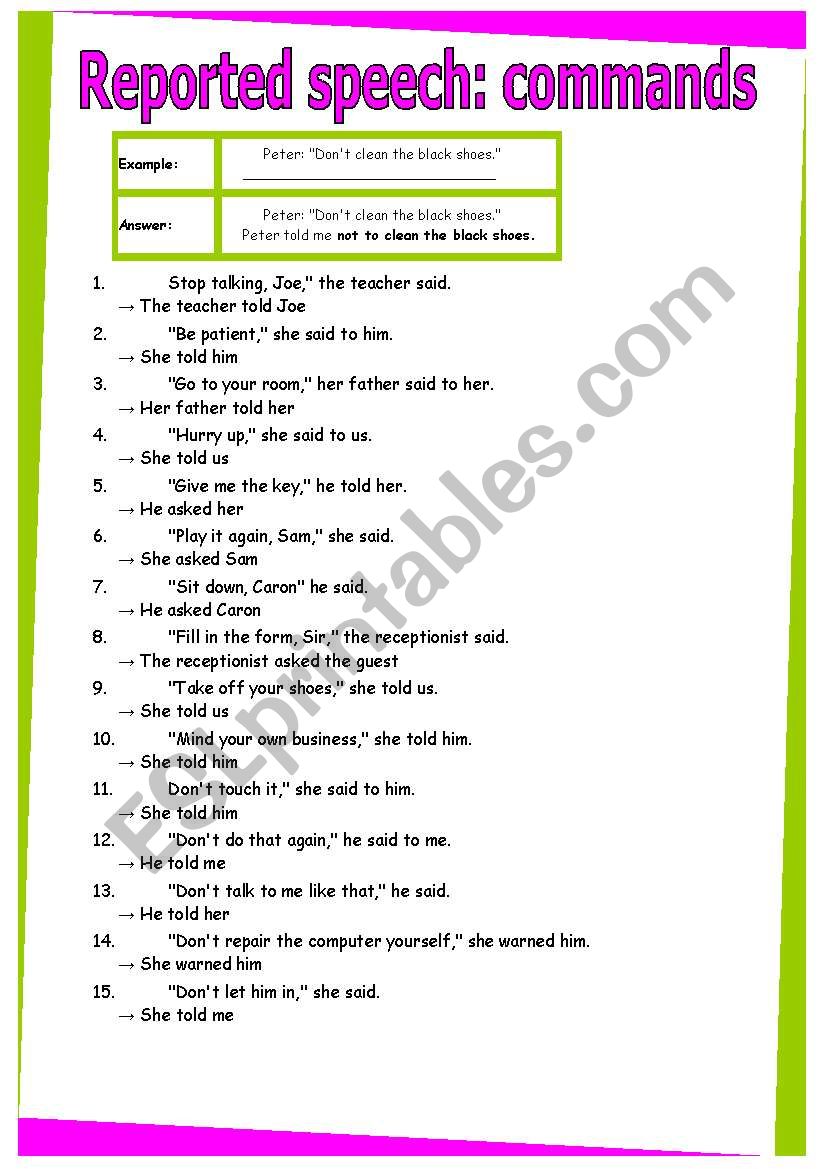

Peter tells Mary to leave the room.ġ) “Take the children to the zoo.” Dad to mumĢ) “Let me have a look at these frogs.” The professor to the studentsĤ) “Pay your instalment.” The financier to the Smithsĥ) “Wash your hands before breakfast.” Mum to the childrenĦ) “Brush your teeth at least twice a day.” The dentist to JimĨ) “Stop before the street-crossing.” The driving instructor to Kenĩ) “Do your maths homework.” Dad to Lindaġ0) “Pick up the litter in your room.” Mum to SamĮ.g.: Don’t drink any water. Look at the example.Į.g.: Leave the room. Task - Rewrite the sentences into reported commands in the present. The first group to complete their worksheets with grammatically correct sentences wins the game.R E P O R T E D C O M M A N D S / R E Q E S T S / S U G G E S T I O N S When all the group members have written the sentence, the next student asks the second question to the person whose name is written at the beginning of the second sentence and so on. Everyone in the group then writes down what the student said on their own worksheet.

'Sophia said that she had been studying English for five years'. The student then returns and reports back the answer to the group using reported speech, e.g.

Sophia) and goes to the group where the person is located to ask them the question. The student then looks at the name at the beginning of the first sentence on their worksheet (e.g. Next, a student from each group reads a question and memorizes it. First, students write down the name of a student that is not in their group at the beginning of each sentence on their worksheet. In this rewarding reported speech game, students report back answers to questions and race to complete sentences about what people said. Finally, pairs read their articles to the class. After the interview, the journalist and traveller work together to write a short magazine article in reported speech, based on what the traveller said in the interview. The journalists then interview their partner (the traveller) using the questions on their worksheet, noting down their answers on a piece of paper. When everyone is ready, each journalist pairs up with a traveller. The journalists make questions from the prompts on their worksheet and create two questions of their own at the end. The travellers also think of two more things they can say about their trip. In groups, the travellers think of answers to questions about their trip and write them on their worksheets. The two students then write a short magazine article about the interview using reported speech.

In this engaging reported speech activity, students role-play an interview between a traveller who is planning a trip around the world and a journalist who is interviewing them about their trip.


 0 kommentar(er)
0 kommentar(er)
